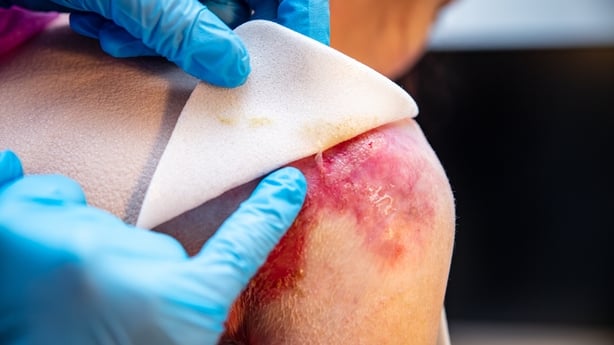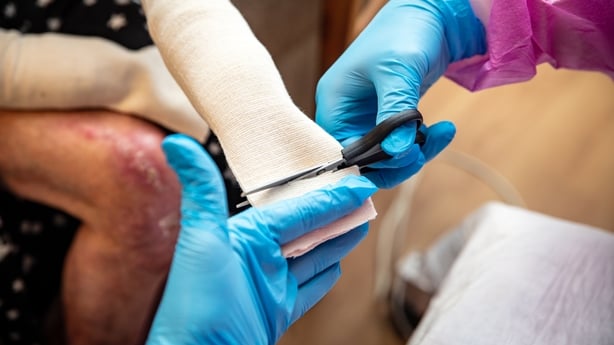Patients with a chronic and serious skin condition and their families are carrying a heavy economic burden because of a lack of support from the state, according to a new report from Debra Ireland.
The charity estimates the costs of caring for someone who has Epidermolysis Bullosa (EB) at more than €130,000 per year.
The devastating and painful skin condition is caused by a lack of essential proteins which bind the skin together, creating breaking and excruciating blistering at the mildest touch. In severe cases, patients need daily bandaging to prevent infection.
There are direct costs such as medical supplies but also indirect costs as often parents cannot work full-time as they care for their children.
The research suggests Ireland compares poorly to other countries where families receive better support.
In the UK, the cost of caring for someone with EB is estimated to be €67,976, in Germany it is €46,116 and in Italy it is €49,233.

EB patients received no additional funding in Budget 2024, for the second year in a row.
"We have been cast aside again. My daughter matters, her life matters, people with EB matter, they exist and we're not going away," said Liz Collins, whose 19-year-old daughter Claudia lives with recessive dystrophic EB, leaving 80% of her body covered in open wounds.
Campaigners are marking EB Awareness Week by calling for new supports.
They want a bandage scheme, similar to those in Spain or Austria where the dressings are delivered free to a patient's home. They estimate this would cost €400,000 per year.
"Of the multitude of obstacles facing people with EB, access to specialised bandages is a significant issue," said Joanna Joyce, Head of Advocacy with Debra, which commissioned the research.
"Bandages can cost thousands of euro each month and this disproportionately affects those without medical cards."

The international review, conducted by the Kemmy Business School at the University of Limerick, found that the quality of life of those with EB is "profoundly negative" and many adults face challenges around employment prospects, relationships, the pursuit of education and home life.
It compared the experience of people with EB in five countries - Ireland, UK, Spain, Australia and Austria.
International studies show that depression has a prevalence of 63% among people with EB, compared to 10% for the general population - and in all five countries, mental health supports were found to be limited.
To address this, Debra is calling for funding for an adult clinical psychologist post in St James’s Hospital in Dublin.
The UL report also found that in Ireland, challenges remain in the provision of home nursing care, such as the lack of a contingency plan when nursing staff are unavailable - and to address a lack of EB-trained nurses to replace those who move on.
Debra wants a ring-fenced fund of €580,000 a year to ensure secure and flexible care packages.







